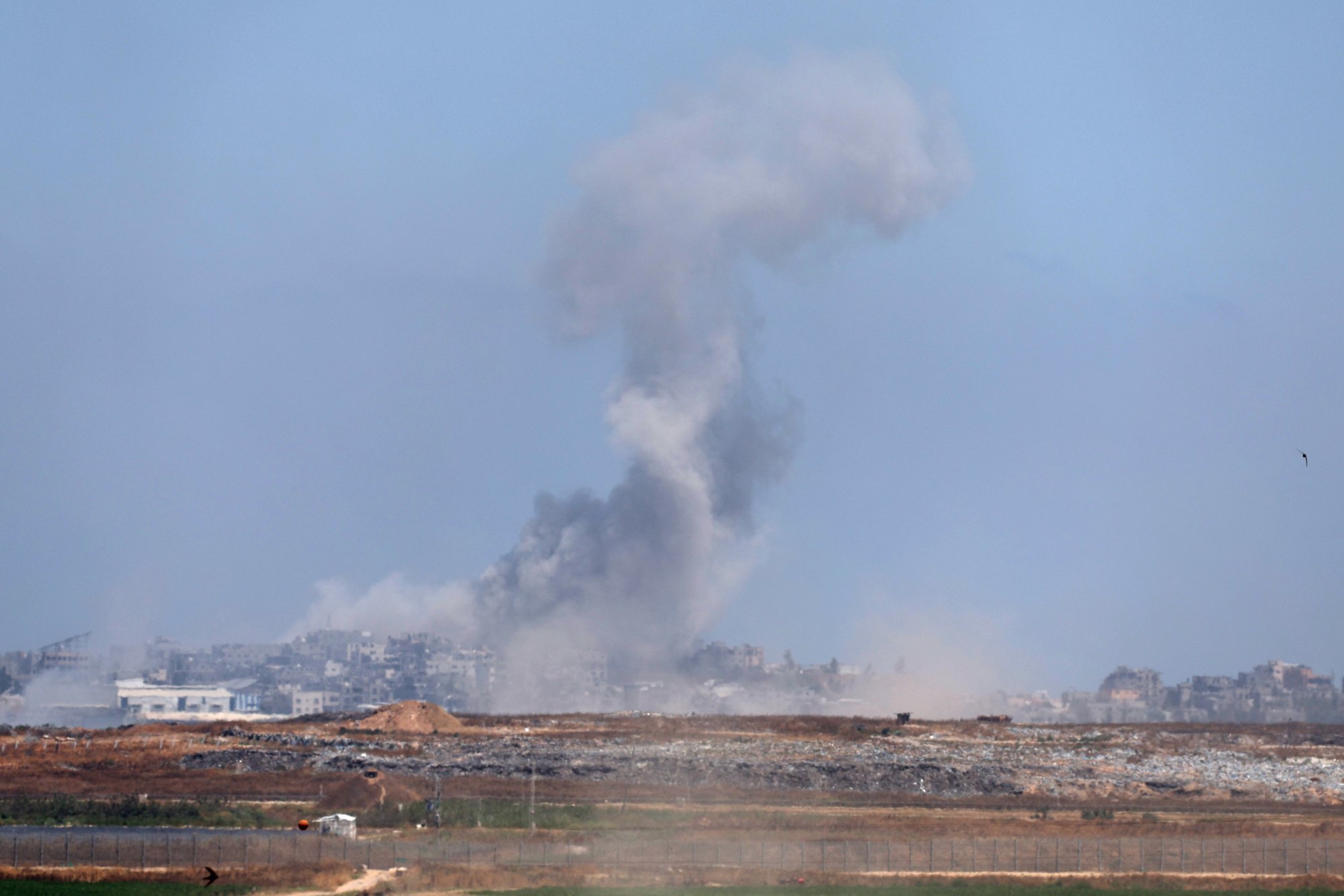As international pressure mounted on Israel to drop its refusal to negotiate a two-state solution to the Palestinian issue, the country was censured by its American allies.
Israel has become more isolated globally
“Israel has become more isolated globally,” said Barbara Slavin, distinguished Middle East fellow at the Stimson Centre, a Washington-based think tank.
The Biden administration voted against the UN General Assembly resolution on Palestine and was still largely shielding Israel in the UN Security Council, she said.
The US Congress last month authorised about US$14 billion in additional weaponry for Israel on top of the nearly US$4 billion annually that the country will receive up to 2026.
And the US State Department “continues to waffle” about whether Israel had violated international humanitarian law, Slavin said.
“So the trend lines, while not good for Israel, still suggest that Israel has a lot further to fall,” she told This Week In Asia.
The US State Department’s report, issued at the request of Senator Chris Van Hollen of Biden’s Democratic Party, did not make the case-by-case assessments he had sought on whether international humanitarian and human rights laws had been violated.

Instead, the State Department said Israel had not provided it with sufficient information to make such determinations. In the absence of this data, it declared that the US government considered Israel’s assurances credible that it was using American weapons in accordance with international law.
“This report contradicts itself because it concludes that there are reasonable grounds to believe violations to international law have occurred, but at the same time that says they’re not finding non-compliance,” Van Hollen said.
South Africa’s latest move at the ICJ followed several provisional rulings ordering Israel to refrain from any acts that could fall under the Genocide Convention, including blocking humanitarian aid supplies to Gaza’s starving population of over 2.2 million.
Pretoria petitioned the ICJ in December to hear its allegations that Israel’s actions in Gaza constitute genocide.
Former ICJ lawyer Mike Becker, an assistant professor at Trinity College Dublin’s School of Law, said “a near-majority of judges” had expressed support for an order for Israel to suspend military operations in Gaza in March.
“If the new facts [presented by South Africa] persuade another few judges, the ICJ might take this step, which it has been reluctant to take up to this point,” he said.

Egypt announced on Sunday it would “intervene” in support of South Africa’s case, followed by Nato member Turkey on Tuesday.
Egypt’s foreign ministry said its support for the genocide case against Israel came “in light of the worsening severity and scope of Israeli attacks against Palestinian civilians in the Gaza Strip” and its “pushing Palestinians into displacement and expulsion”.
Cairo joined the case following the failure of its recent ceasefire mediation efforts between Israel and Hamas.
Egypt saidIsraeli forces’ occupation of the Philadelphia Corridor at the border between Gaza and Egypt and its seizure of the Rafah and Kerem Shalom border crossings last week contravened the 1979 Camp David Accords under which both countries ended decades of hostilities and established diplomatic relations.
Biden has previously said Israel would cross a red line if it were to mount a full-fledged military assault in Rafah. According to Washington’s most recent assessment, Israel has not crossed the threshold as yet.
“Cairo showed it means business” by announcing it would support South Africa’s genocide case against Israel, he said, adding Egyptian officials also understood they had “another leverage card over Netanyahu” because of backing by the US of its mediation efforts.
“This is the first time since the [1956] Suez War that a US administration’s public views align with Egypt’s and Arab interests: to restrain Israel and stop the war,” Aboudouh noted in a research paper published by Chatham House on Monday.
Gulf monarchies have also ratcheted up their rhetoric against Israel since its forces entered Rafah last week.
UAE’s Foreign Minister Abdullah bin Zayed al-Nahyan said Netanyahu “does not have any legal capacity” to take charge of Gaza’s civil administration.
Abu Dhabi “refuses to be drawn into any plan aimed at providing cover” for the Israeli presence there, he said.

The resolution calls for a seat in the UN General Assembly to be given to Palestine, an observer member of the UN since 2012 represented by the Fatah faction-led Palestinian Authority based in the West Bank.
The US has said that it would again veto the move.
“But interestingly none of the Arab countries that have recently normalised relations with Israel have broken ties,” the Stimson Centre’s Slavin said.
“These are autocratic Arab governments that do not respect popular opinion. They hate Hamas and Iran and value security cooperation with the US,” she added.
“I would not say the US efforts are doomed,” Slavin said.
To succeed, Washington’s diplomatic push would require a “post-Netanyahu Israeli government that is at least willing to give a fig leaf to the notion of Palestinian statehood and at a minimum, a revived Palestinian Authority”, she said.

The UN General Assembly resolution on Palestine’s membership was approved by 143 votes to nine against, with 25 abstentions.
China has supported the Arab group’s position throughout the Israel-Gaza conflict with its heft as a permanent UN Security Council member.

The three countries have backed several UN Security Council resolutions calling for a ceasefire that were opposed by Israel and ultimately vetoed by the US.
“I think the threat of pariahdom is not imminent but if Israel does not change course, it will become so in a few years.”


